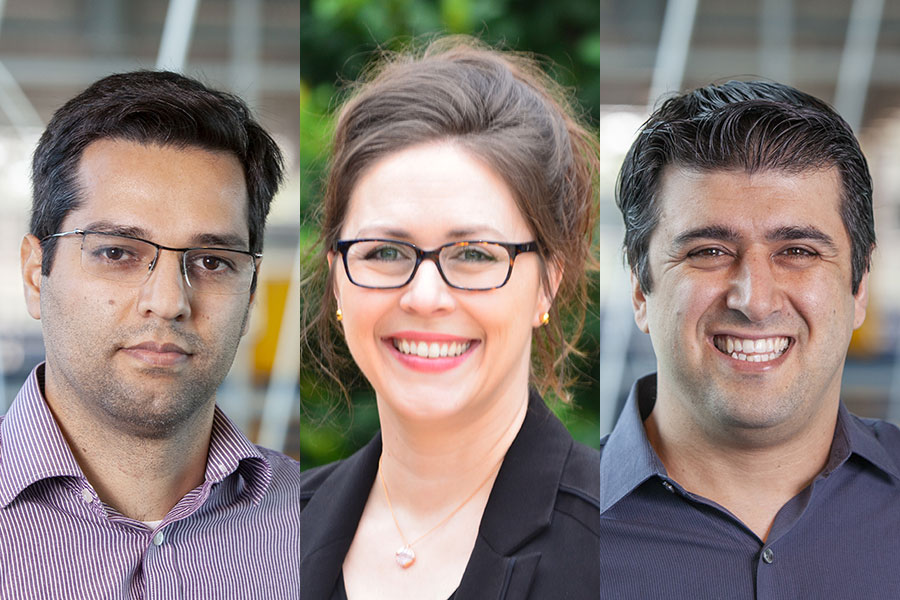
Three Florida State University faculty members have received the CAREER award from the National Science Foundation for significant early career achievements in research and teaching.
The CAREER award is one of the most prestigious awards granted to junior faculty by the NSF. It supports scholars in the early stages of their careers and helps them develop long-term research programs.
“These awards reflect the remarkable strides these three faculty members have made in the first few years of their academic careers,” said Vice President for Research Gary K. Ostrander. “We are so pleased that the NSF has recognized their accomplishments, and we look forward to seeing them grow and contribute to their fields in the years to come.”
The three winners are:
Hadi Mohammadigoushki, Department of Chemical and Biomedical Engineering, FAMU-FSU College of Engineering: Research in Mohammadigoushki’s group revolves around flow and dynamics of complex fluids. Complex fluids are ubiquitous in both nature and industry. These systems are widely found in applications such as oil-gas, pulp and paper, food, adhesives, detergents, cosmetics, and protein gels. The primary goal of our research is to discover new phenomenon in complex fluids and to investigate the connection between molecular properties and processing conditions of complex fluids. For the CAREER award’s educational component, Mohammadigoushki and his team will produce FlowKits for teachers and students to explore the unusual properties of the complex fluids in the classroom. Mohammadigoushki joined FSU in 2016 after completing his doctorate at the University of British Columbia and a postdoctoral fellowship at the University of California, Berkeley.
Kourosh Shoeles, assistant professor in the Department of Mechanical Engineering, FAMU-FSU College of Engineering: Shoeles will investigate fluid-structure interactions of air flow over tree canopies, paving the way to improve predictions of storm severity. There is a gap in the current knowledge about turbulent flow over these canopies and identifying the processes that control storm severity. The primary educational objective of Shoeles’ program is to enhance the multidisciplinary education of mechanical engineering students and increase the retention rate among minority undergraduate students. Shoeles will use nature-inspired examples and live demonstrations to motivate students to pursue science and engineering disciplines. Shoeles received his doctorate from University of California, San Diego and previously worked at Johns Hopkins University as an associate research scientist.
Miranda Waggoner, assistant professor in the Department of Sociology, College of Social Sciences and Public Policy: Waggoner’s project will investigate past and present changes in biomedical research regulations pertaining to “vulnerable populations,” with a specific focus on obstetric patients and clinical trials. This work will have implications for ethical considerations of clinical research and for what we know about reproduction and health. The project’s education plan centers on expanding instruction in science studies and bioethics. Waggoner received her doctorate from Brandeis University in 2011. Before joining FSU in 2015, she worked as a postdoctoral researcher at Princeton University and served as an assistant professor at the University of Virginia. She is the first faculty member from the College of Social Sciences and Public Policy to win a CAREER award.




